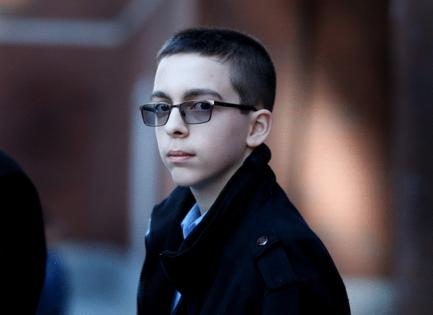Supreme Court not hearing Massachusetts student's two genders shirt case 'a setback for free speech'
Published in News & Features
The Supreme Court not hearing the case of a local student who was banned from wearing an “only two genders” shirt to middle school is a “setback for free speech,” according to the group defending the student.
The country’s highest court on Tuesday announced that it will not hear Liam Morrison’s case against the town of Middleboro.
The lawyers for Liam had filed a petition with the Supreme Court after a federal appeals court in Boston ruled against him last year. The lawyers have now lost their bid for SCOTUS to hear Liam’s case.
“This is a disappointing development — a setback for free speech,” wrote Logan Spena, legal counsel for Alliance Defending Freedom. “By denying the case, the Supreme Court leaves in place a lower court ruling that denied Liam’s clear constitutional right to free speech.”
Justices Samuel Alito and Clarence Thomas dissented, arguing that the court should hear the case.
“We’re disappointed the Supreme Court chose not to hear this critical free speech case,” Alliance Defending Freedom senior counsel David Cortman said in a statement. “As Justice Alito recognized: ‘The case presents an issue of great importance for our Nation’s youth.’ Students don’t lose their free speech rights the moment they walk into a school building.
“Schools can’t suppress students’ views they disagree with,” added Cortman, who’s also the VP of U.S. litigation for the group. “Here, the school actively promotes its view about gender through posters and ‘Pride’ events, and it encourages students to wear clothing with messages on the same topic — so long as that clothing expresses the school’s preferred views on the subject. Our legal system is built on the truth that the government cannot silence any speaker just because it disapproves of what they say.”
Liam was banned by school officials from wearing a shirt to school that read, “There are only two genders.” The 7th grader then wore a shirt that stated, “There are censored genders,” and again, he was ordered to take off the shirt.
A U.S. district judge ruled in favor of the Middleboro school officials, and the U.S. Court of Appeals for the 1st Circuit then affirmed the district court’s ruling.
The Middleboro school district each year celebrates Pride month, hanging Pride flags and sending the message that there are “an unlimited number of genders,” one of Liam’s lawyers had argued in front of the appeals court.
In response to the school’s view, Liam wore the controversial shirt to Nichols Middle School.
School officials in response told Liam to either take off the shirt or leave school for the day. Liam chose to miss the rest of his classes that day.
When the Middleboro principal pulled Liam out of class and told him he had to take off his shirt, the principal said they had received complaints about the words on his shirt — and that the words might make some students feel unsafe.
The appeals court wrote in its ruling, “Middleborough was enforcing a dress code, so it was making a forecast regarding the disruptive impact of a particular means of expression and not of, say, a stray remark on a playground, a point made during discussion or debate, or a classroom inquiry.”
_____
©2025 MediaNews Group, Inc. Visit at bostonherald.com. Distributed by Tribune Content Agency, LLC.







Comments